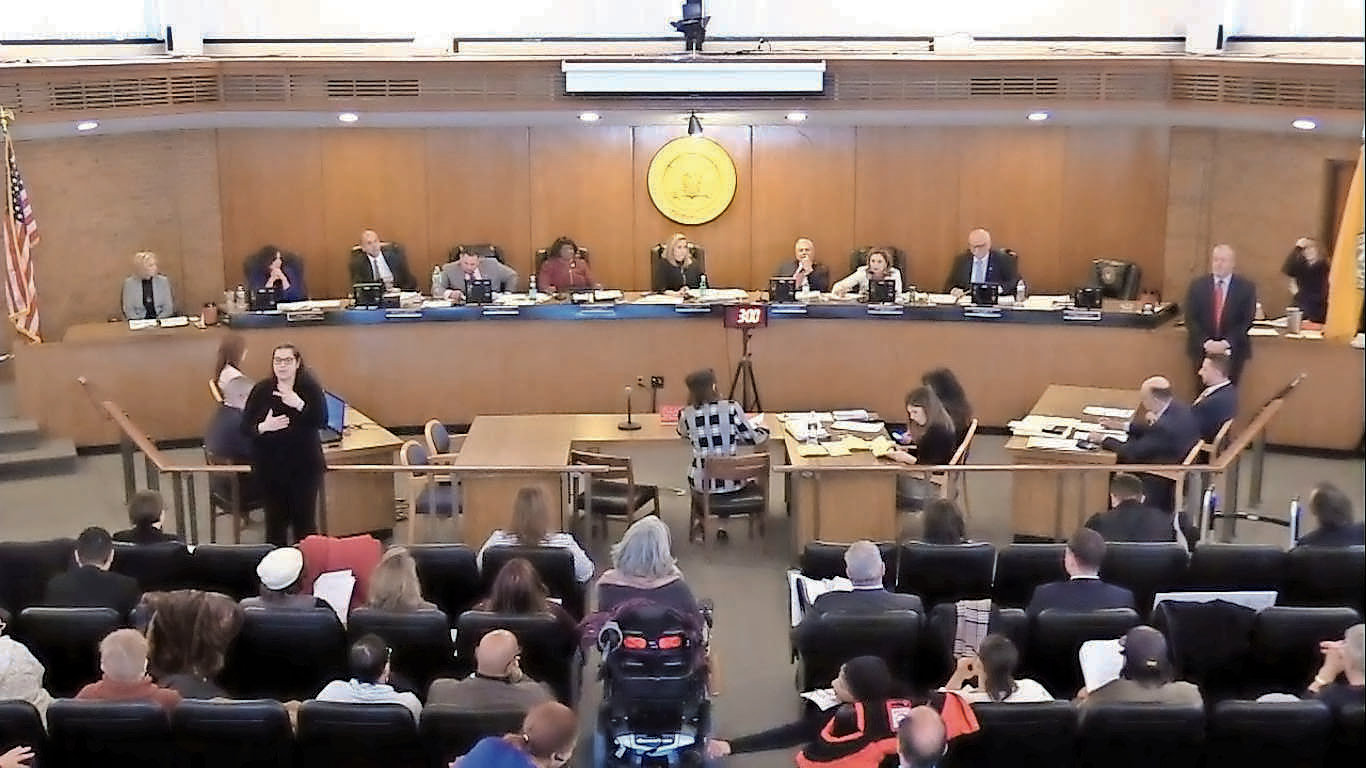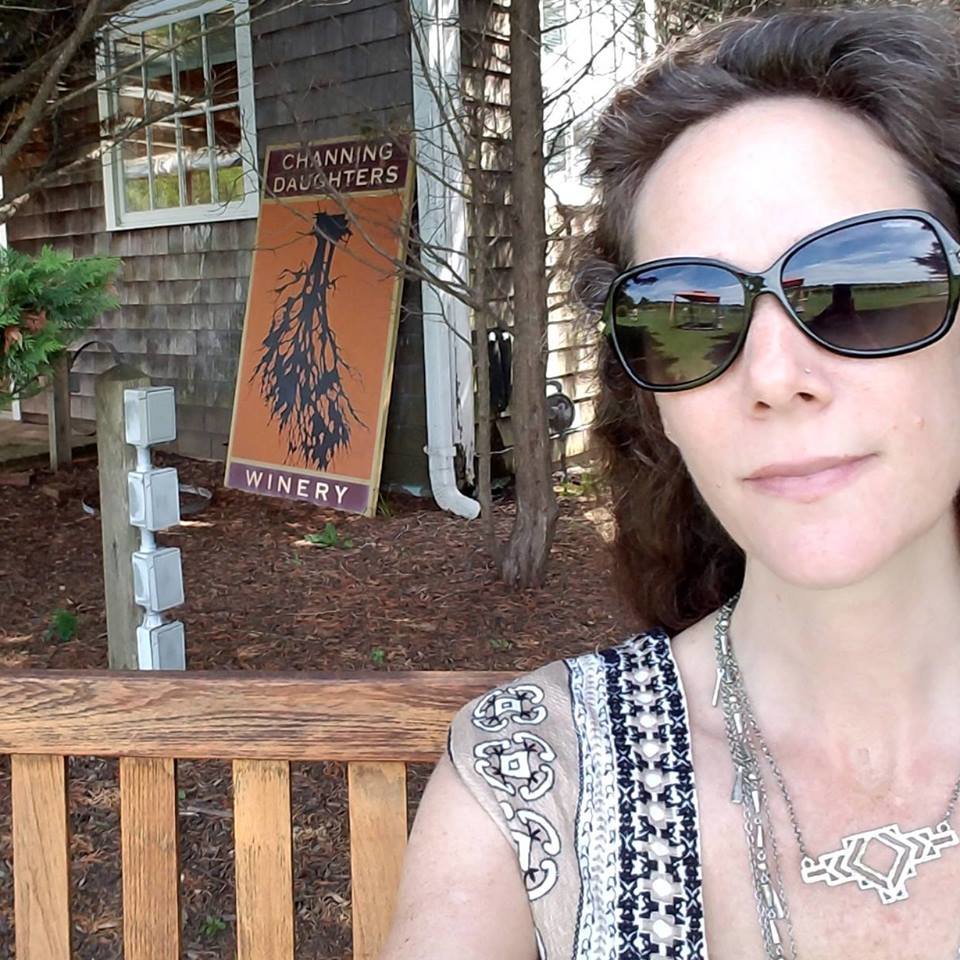Town officials enact pre-emptive pot ban
Board votes 7-0 to issue one-year moratorium
Members of the Hempstead Town Board unanimously decided to get out in front of impending recreational marijuana legalization at the state level. With a vote of 7-0, the Town Board enacted a moratorium of one year on the sale of pot within the town, and a ban on smoking it in town parks and facilities.
Local activists, however — including Bellmore’s Lisa Tyson, director of the Long Island Progressive Coalition — pointed to the high arrest rates of people of color for low-level marijuana offenses despite near-equal levels of use among white people in Nassau and Suffolk counties. Some residents also questioned the value of the townwide moratorium.
Democratic Town Supervisor Laura Gillen and the Republican-majority board agreed to take a year to gather residents’ input, and figure out how the actual legislation would deal with municipalities wishing to opt out of legalization. At this point, Gillen said, it would likely be the county’s prerogative to opt out.
“It’s important to us to listen to our constituents, to hear how they feel about these issues,” Gillen said. “It’s not kicking the can down the road — right now we’re in a legal grey area . . . we need to press pause and see how the legal landscape shapes out. That’s the most responsible thing we can do right now.”
Republican Councilwoman Erin King Sweeney, of nearby Wantagh, agreed, adding that she has had discussions with friends of every political persuasion, and that opinions on recreational pot don’t always line up with parties. “We really need to have a data-driven conversation on this,” King Sweeney said.
Last year, Gov. Andrew Cuomo announced that he would back the legalization and taxation of recreational marijuana, a move that is expected to pass the State Assembly and Senate, both of which are controlled by Democrats. The consumption of medical marijuana has been legal in the state since 2014.
Republican Councilman Bruce Blakeman said he was staunchly opposed to legalizing recreational marijuana, despite supporting it for medical purposes. “I’ve spoken with health care and law enforcement experts, and the vast majority have warned of the public health disaster if recreational marijuana is legalized,” Blakeman said.
A number of residents and advocacy groups took issue with Town Board members’ concerns and their understanding of the issues surrounding legalization.
“You have the ability, as soon as marijuana becomes the law, to put drug dealers out of business,” Rori Gordon, of Hauppauge, told the board. “If you pass this law, you’ll be supporting criminal activity . . . people are smarter than you think, and can this town afford to give up the revenue?”
Republican Councilman Anthony D’Esposito disagreed with Gordon. “Are you suggesting that if marijuana is legal, there will be no one dealing marijuana?” he asked Gordon. “Is that what you’re suggesting? That’s insane.”
Gordon followed up by asking Gillen and King Sweeney — both mothers — whether, if their children were to experiment with marijuana, they would rather have them buy it from a state-licensed dealer or someone on the street, “where the joint could possible be laced with heroin.”
“If my kids were using marijuana, they’d probably be in very big trouble,” Gillen said.
Susan Gottehrer, director of the Nassau County Chapter of the New York Civil Liberties Union, said that members of the board were ignoring important issues when considering the legalization. “We strongly recommend localities consider the role they can play to undo the harm of criminalization,” Gottehrer said, “and to ensure communities who have lost the most from prohibition stand to gain the most from thoughtful legalization.”
Gottehrer also noted that four out of five people arrested for possession are black or Latino, despite similar rates of use across ethnicities. She urged the board to consider “civil penalties and desk ticket appearances” for people who violate the town laws against using in parks, to avoid “being complicit” in biased policing.
D’Esposito, a former NYPD detective, took issue with Gottehrer’s statements. “It either is marijuana or it’s not,” he said. “If they’re arrested, it’s because they deserve to be. It’s not biased toward any race. Maybe the arrest numbers are different, but it’s not biased.”
Gottehrer said that the arrest numbers were important, and offered to provide D’Esposito and the board with information, to which D’Esposito replied, “I lived it. I don’t need the info — thank you.”
Tyson, of the LIPC, agreed with the NYCLU’s stance.
“We need to end the injustice of arresting and prosecuting low-level marijuana offenses,” she said in a statement. “Not another single person should to be subject to the collateral damage that accompany these so-called minor offenses. It’s unacceptable to continue the status quo around marijuana enforcement.”
In Nassau County in 2017, black and Latino people accounted for 60 percent of arrests for marijuana possession, despite making up only 30 percent of the population, according to the LIPC.
“It’s time for Long Island to have an inclusive conversation that includes the community about what responsible regulation and legalization will look like,” Tyson said.
Hempstead residents were to have another chance to weigh in on Tuesday at Town Hall, when a county task force held by County Executive Laura Curran was scheduled to hold a listening session, at which residents could give elected leaders their suggestions for how to respond to legalization.









